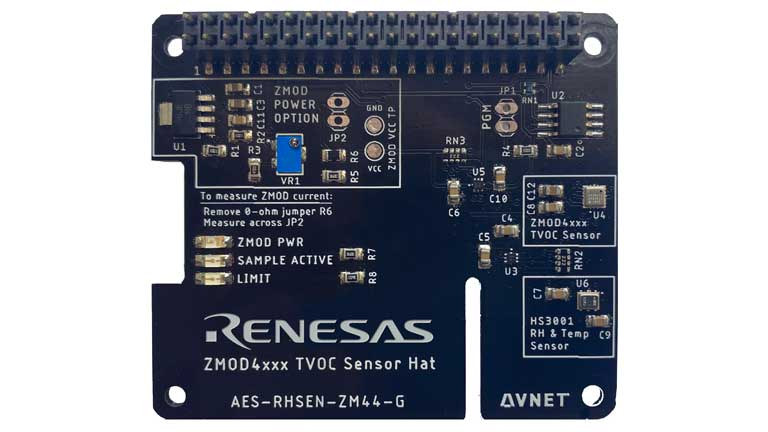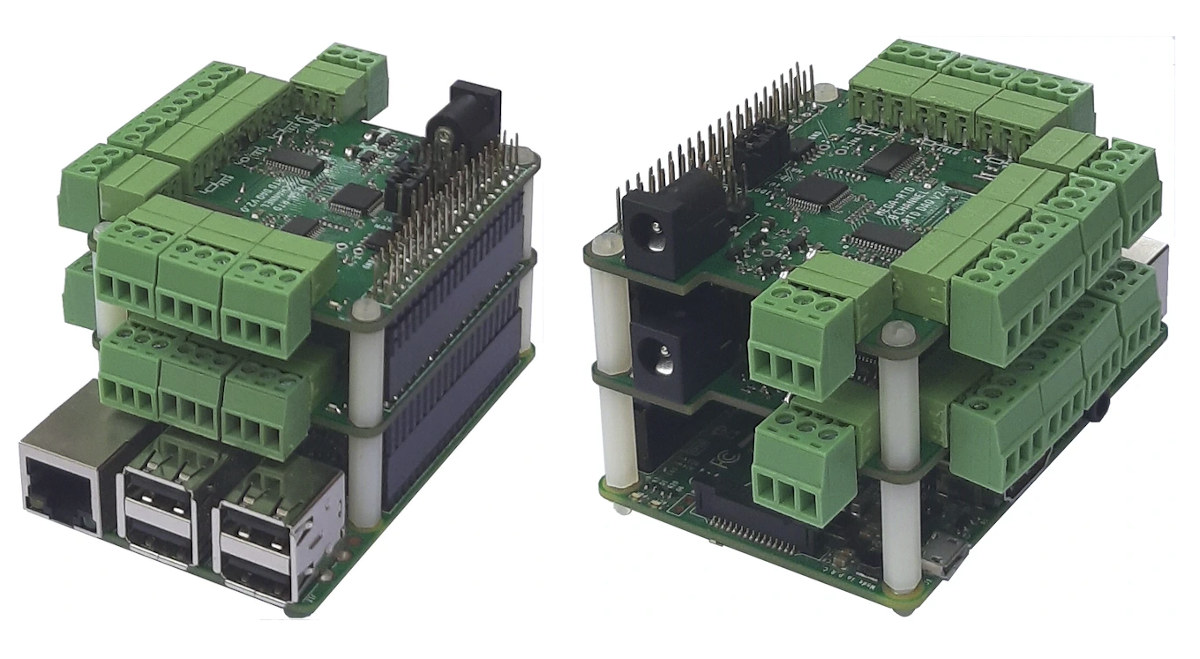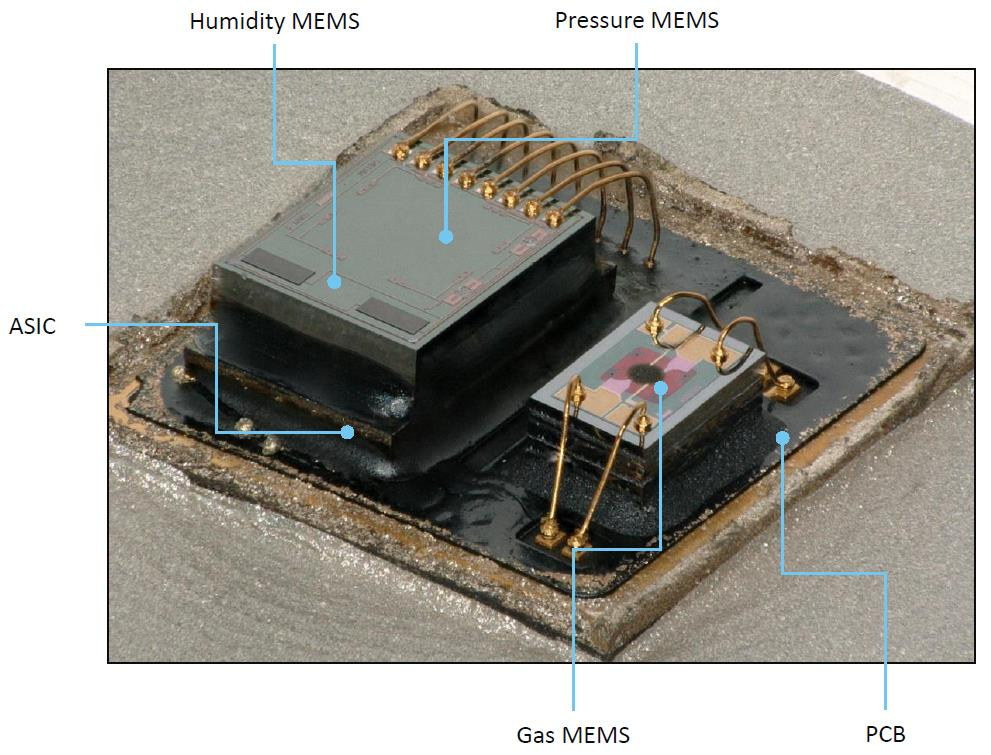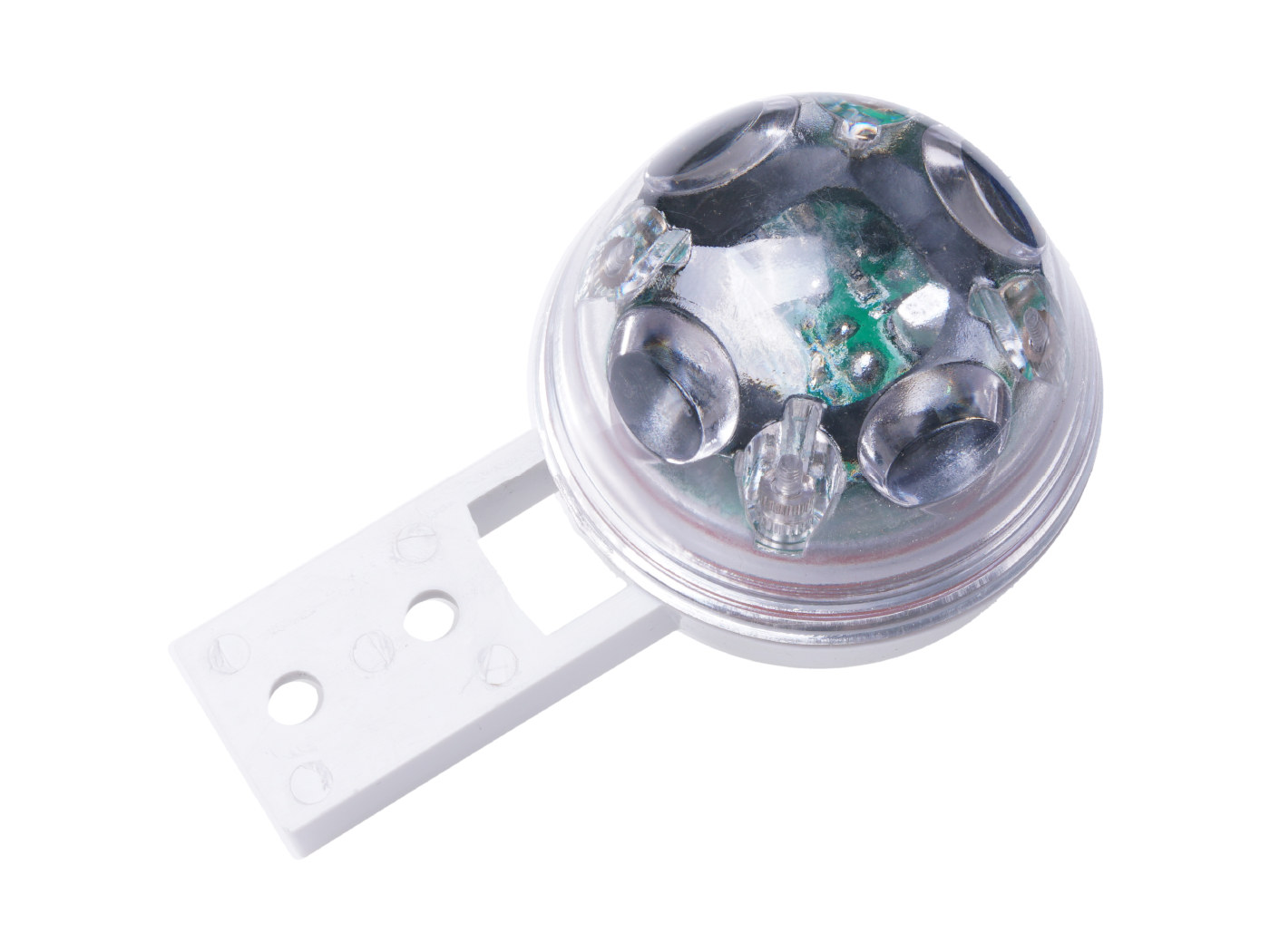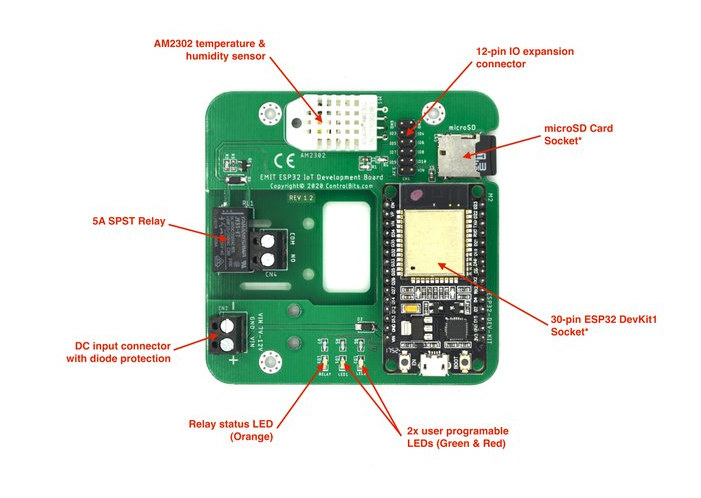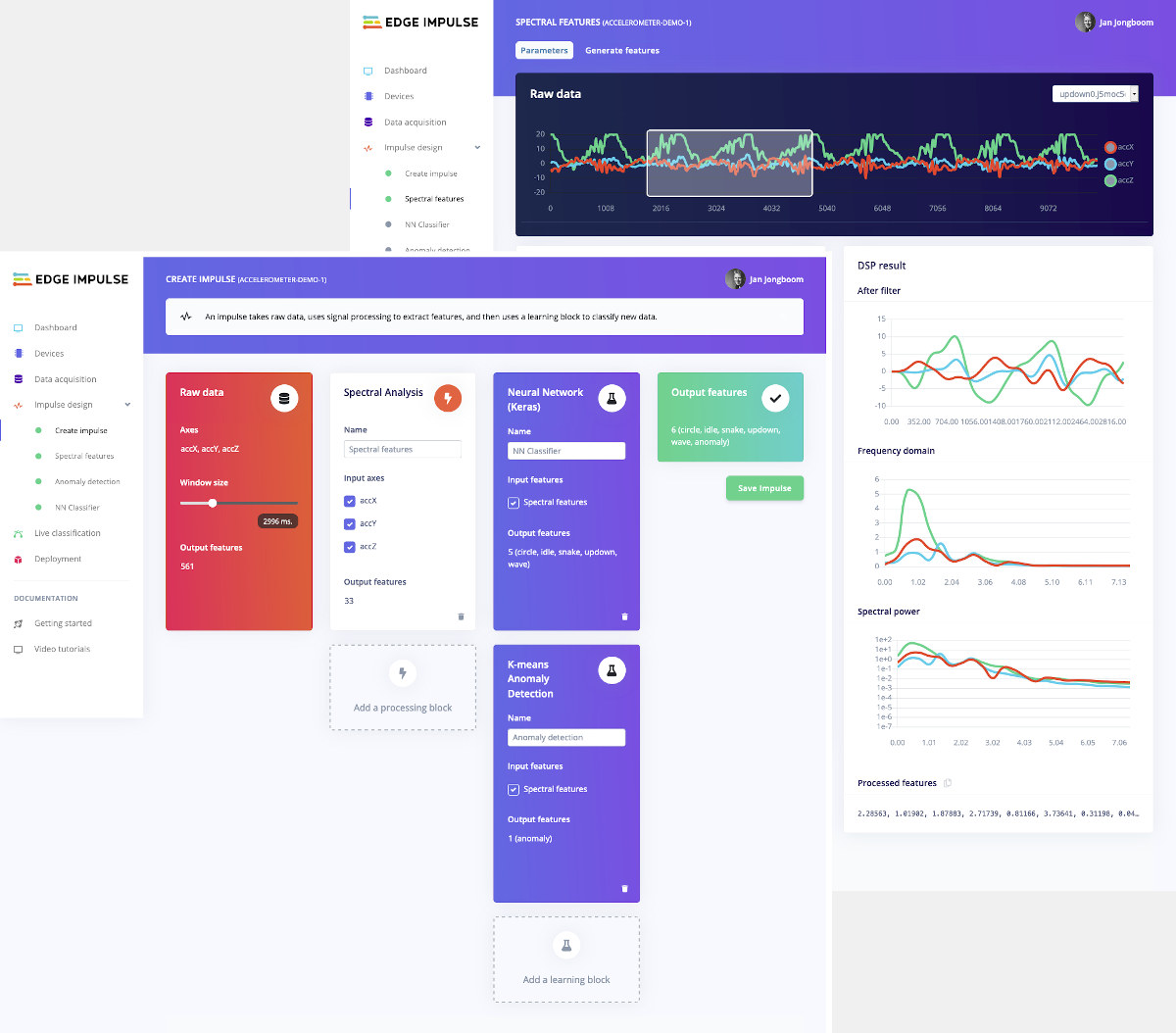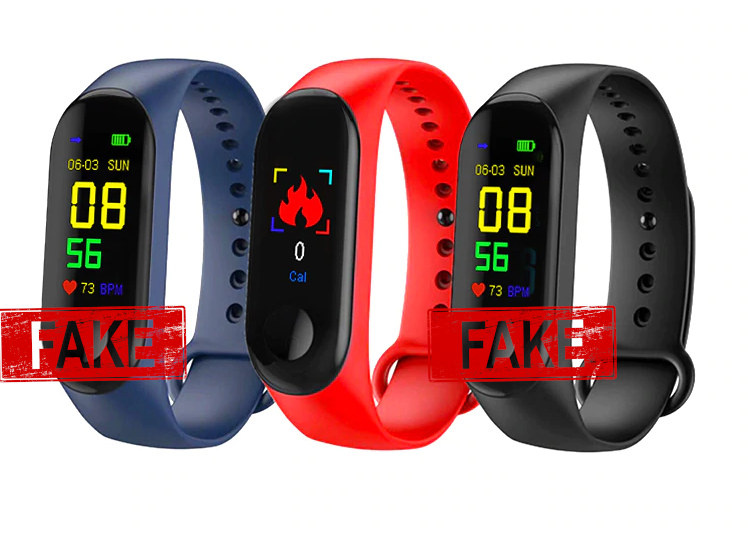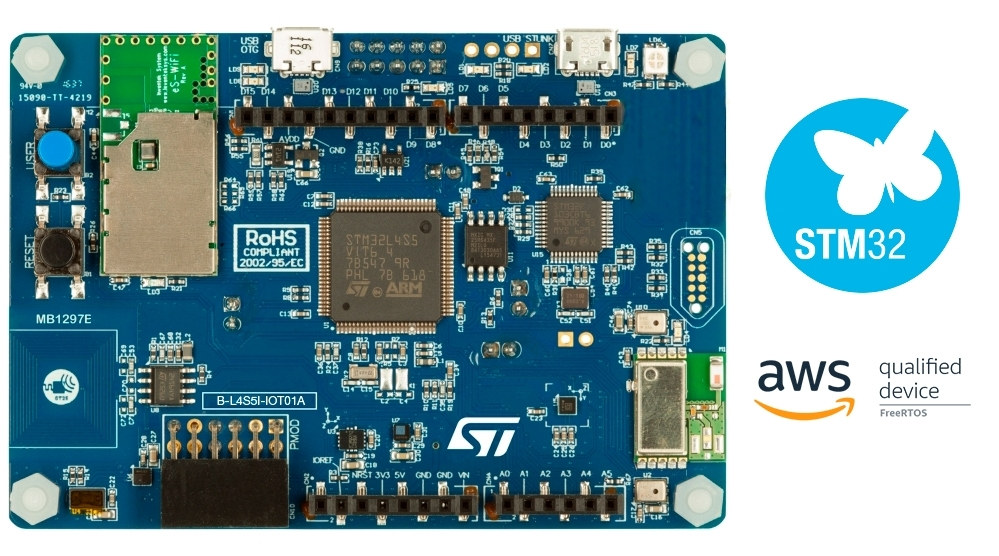We’ve recently covered a few products or solutions designed to report indoor air quality (IAQ) including ESPurna firmware getting support for BME680 precise indoor air quality measurements and Metriful Sense indoor environment monitor for Arduino and Raspberry Pi. Avnet has now introduced its own Raspberry Pi IAQ add-on board with “Renesas ZMOD4410 Indoor Air Quality HAT for Raspberry Pi” capable of measuring VOC (volatile organic compounds), humidity and temperature, as well as estimating carbon dioxide (eCO2) levels. Renesas ZMOD4410 TVOC Sensor Hat (AES-RHSEN-ZM44-G) key features and specifications: Sensor – Renesas ZMOD4410 TVOC / IAQ I2C sensor, Renesas HS3001 relative humidity & temperature I2C sensor Misc – Power LED; software-controlled status LEDs for “sample active” and “limit” Host Interface – 20-header for Raspberry Pi with configurable alarm/interrupt output Power Supply via header Jumper for supply voltage selection between 1.75V and 3.9V (default: 3.3V) Test points to measure ZMOD4410 current consumption Avnet […]
MEGA-RTD Raspberry Pi HAT Offers up to 64 Resistance Temperature Detectors (Crowdfunding)
Sequent Microsystems like to make stackable Raspberry Pi HATs. After their stackable 4-relay board allowing for up to 32 relays controlled by a Raspberry Pi board, the company has now launched MEGA-RTD 8-channel RTD Raspberry Pi HAT enabling up to 64 resistance temperature detectors via 8x MEGA RTD board stacked on top of a Raspberry Pi board. If you haven’t heard about this type of temperature sensors, we wrote a post explaining the advantages and drawbacks of resistance temperature detectors last year. Basically, those temperature sensors contain a resistor that changes resistance value as their temperature changes, and support much wider temperature ranges than traditional temperature sensors such as DHT22 while keeping a <0.1°C accuracy. The price of the sensors themselves is similar to traditional sensors, but the total price is more expensive since they require extra hardware to measure the resistance/voltage value. MEGA-RTD key features and specifications: MCU – […]
ESPurna ESP8266 Automation Firmware Gets Support for BME680 Sensor’s Precise Indoor Air Quality Measurements
Bosch BME680 is a 4-in-1 air quality sensor measuring relative humidity, barometric pressure, ambient temperature, and gas (VOC) levels. It’s found in boards such as STM32 based Metriful Sense or Nordic Thingy:91, and Bosch Sensortec published an Arduino library based on “Bosch Sensortec Environmental Cluster (BSEC) Software” to provide precise calculations temperature, humidity, pressure, and indoor air quality (IAQ). BSEC proprietary algorithms can provide indoor air quality data as good as more expensive CO2 sensors according to a recent presentation by the company. Max Prokhorov, lead ESPurna maintainer, and Rui Marinho noticed none of the popular open-source ESP8266 automation firmware including ESPurna, Tasmota, and Esphome supported BME680 sensor just yet. So they decided to work together to add BME680 sensor support via BSEC library to ESPurna firmware, and now it’s very easy to use as you just need to define BME680_SUPPORT=1 before compiling the firmware. You’ll find the now-merged pull […]
Industrial-Grade Optical Rain Gauge Beams Infrared Light to Measure Rainfall
I remember when I was a kid, we had rain gauge to measure the amount of rainfall in the garden, so after heavy rains, I liked to have a look to find out how much rain actually fell. Those collected water in a tube, and we could read the millimeter value right on the tube. But now with the Internet of Things, we can have smarter solutions including tipping-bucket rain gauges that collect water and usually report the data via an RS-232 port. But I’ve just found out there’s another method to measure rainfall with an industrial-grade optical rain gauge I just found on Seeed Studio for $99.00. It’s a sphere about the size of half a tennis ball that beams infrared light instead of collecting water and somehow managed to accurately report the amount of rainfall. RG-15 optional rain gauge specifications: Nominal Accuracy – ±10% Host Interfaces J1 Terminal […]
EMIT ESP32 IoT Development Board Comes with Temperature & Humidity Sensor, 5A SPST Relay (Crowdfunding)
ControlBits EMIT (Environmental Monitoring for the Internet of Things) is a baseboard compatible with DOIT ESP32 DevKit V1 development board and equipped with a temperature and humidity sensor, a relay, a 12-pinGPIO connector, and a MicroSD card. EMIT ESP32 IoT development board specifications: Socket for DOIT ESP32 DevKit v1 board with WiFi and Bluetooth LE connectivity Storage – MicroSD card socket Sensor – AM2302 temperature & humidity sensor with -40° to +80° C and 0 to 99.9 %RH ranges. Relay – 5A SPST relay output with status LED Expansion – 12-pin GPIO header Misc – 2x programmable status LEDs (red & green) Power Supply – 5V via USB on ESP32 board, or external 7-12 V supply via terminal block Dimensions – 81 x 81 mm (PCB only) The board comes with mounting holes so it can be wall-mounted, and an optional enclosure is also available. Some applications for the board […]
Edge Impulse Enables Machine Learning on Cortex-M Embedded Devices
Artificial intelligence used to happen almost exclusively in the cloud, but this introduces delays (latency) for the users and higher costs for the provider, so it’s now very common to have on-device AI on mobile phones or other systems powered by application processors. But recently there’s been a push to bring machine learning capabilities to even lower-end embedded systems powered by microcontrollers, as we’ve seen with GAP8 RISC-V IoT processor or Arm Cortex-M55 core and the Ethos-U55 micro NPU for Cortex-M microcontrollers, as well as Tensorflow Lite. Edge Impulse is another solution that aims to ease deployment of machine learning applications on Cortex-M embedded devices (aka Embedded ML or TinyML) by collecting real-world sensor data, training ML models on this data in the cloud, and then deploying the model back to the embedded device. The company collaborated with Arduino and announced support for the Arduino Nano 33 BLE Sense and […]
Beware of Fake Heart Rate Sensors in Low-Cost Fitness Trackers
Manufacturers always attempt to lower the BoM costs of their products to increase sales and boost profits. Most do it in an honest way, but some are either incompetent or deceptive as we’ve recently seen in an IR thermometer was the infrared unit was not connected to the mainboard. I’ve just been informed about another trick that’s been going on for a while. Some ultra-cheap fitness trackers come with fake heart rate sensors that are simply replaced by two LED’s to simulate the real thing. The trick was discovered last year by Aaron Christophel who purchased several fitness trackers believe to be based on Nordic Semi nRF52832 in order to as he wanted to use Arduino firmware with those. He managed to do so in several with IWOWNFIT I6HRC tracker being the best suited for the tasks. But he also found some bad apples in the lot with several trackers […]
STM32 IoT Discovery Kit Runs AWS-Ready FreeRTOS, Supports Arduino and Pmod Expansion Boards
STMicroelectronics STM32 IoT Discovery Kit is supposed to ease software development for IoT nodes thanks to a qualified port of FreeRTOS integrated into the STM32Cube ecosystem, and ready to connect to Amazon Web Services (AWS). The hardware is comprised of an STM32L4+ Cortex-M4F microcontroller, various MEMS sensors, a secure element, and offers WiFi, Bluetooth 4.2, and NFC connectivity. STM32 IoT Discovery Kit (B-L4S5I-IOT01A) key features and specifications: MCU – STMicro STM32L4+ (STM32L4S5VIT6) Arm Cortex-M4F microcontroller with 2 MB Flash, 640 KB RAM in LQFP100 package storage – 64 Mbit Quad-SPI Flash Connectivity Bluetooth 4.1 module (STMicro SPBTLE-RF) 802.11 b/g/n compliant Wi-Fi module (Inventek ISM43362-M3G-L44) Dynamic NFC tag based on ST25DV04K with its printed NFC antenna USB – Micro USB OTG port STMicro Sensors 2 digital omnidirectional microphones (MP34DT01) Relative humidity and temperature sensor (HTS221) 3-axis magnetometer (LIS3MDL) 3D accelerometer and 3D gyroscope (LSM6DSL) 260-1260 hPa absolute digital output barometer (LPS22HB) […]


